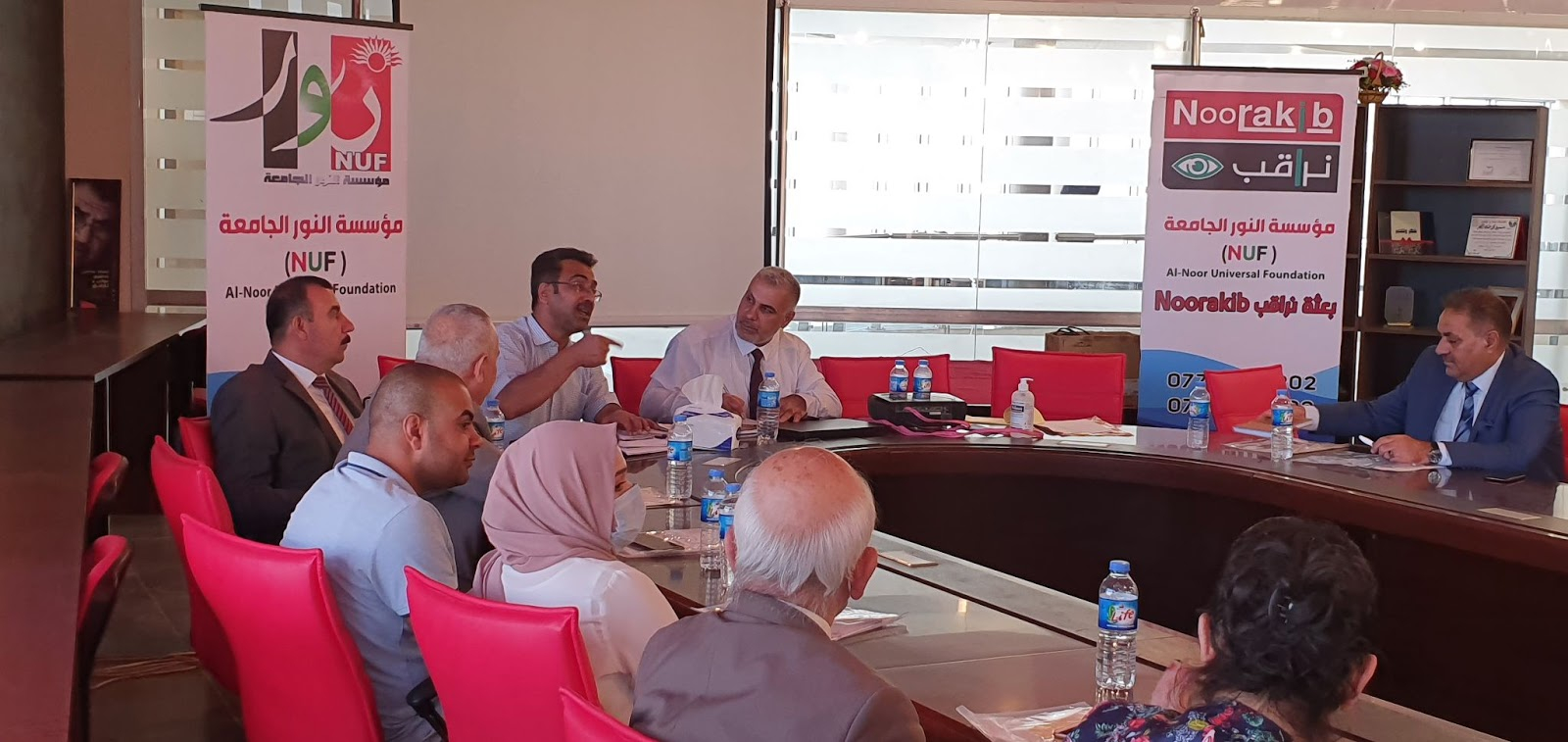
SHARE
With the Iraqi parliamentary elections approaching, transparency and integrity of the electoral process remain a prominent concern. According to the National Democratic Institute’s (NDI) polling conducted after the 2018 parliamentary elections, less than one in five Iraqis believed the elections were free and fair. In advance of future elections, NDI has been actively working with its civil society organization partner, Al-Noor Universal Foundation (Al-Noor), to address public mistrust, enhance voter confidence and participation, and increase transparency of the elections.
Civil society in Iraq has previously faced many obstacles in observing elections and focused mainly on observing election-day events, but elections consist of much more than polling day. Countries prepare for months before holding elections, and the laws governing the election system also impact the integrity and inclusivity of the final process. Recognizing the need for sustained election observation, Al-Noor and NDI have been working together for over two years to observe key pre-election periods. In this time, Al-Noor has become a strong voice in Iraqi elections, creating deep relationships with political allies within Iraq’s Parliament and the Iraq High Electoral Commission (IHEC) and advocating for crucial reforms to Iraq’s election system.
In 2019 and 2020, the protest movement created a window of opportunity for the political establishment to overhaul the electoral system, a core demand of protestors to enhance integrity, transparency and accountability. With the guidance of NDI, Al Noor launched a variety of targeted electoral advocacy campaigns centered on the amendment of the federal court law and the legal framework analysis of the new electoral law.
unnamed (1).jpg

In its attempts to advocate for reform of the Federal Court Law, Al Noor reached out directly to political blocs and the legal committee at the Council of Representatives to persuade them to amend the law. The organization also urged them to reject a contentious draft law that would allow Islamic jurisprudence experts to sit alongside judges and have considerable power to ratify court decisions. Subsequently, the Iraqi Parliament amended the Federal Supreme Court constitution, restoring it to full capacity and eliminating a barrier to early elections. This is a testament to the effectiveness of multi-stakeholder engagement in creating real policy changes.
In 2020, Al Noor also issued a series of press statements outlining proposed amendments to the legal framework, which were communicated to political players including the three presidencies, leaders of political blocs, and more than 130 Members of Parliament. As a result, Al Noor’s suggestions were emphasized by various MPs during parliamentary sessions on election reforms, highlighting the organization's increasing relevance in discussions on electoral processes. The new electoral law was eventually ratified by the parliament in November 2020, clearing the way for early elections the following year.
While the new electoral law represented a significant shift toward free and fair elections, several obstacles remained before elections could be held, namely biometric voter registration and electoral commission reform.
To help overcome these challenges, Al Noor is increasing its monitoring of the IHEC’s voter registration, biometric updates, voter card distribution, political party registration, and other activities by deploying a team of 40 long-term observers (LTOs) across ten provinces: Anbar, Baghdad, Basra, Diyala, Kirkuk, Najaf, Ninewa, Salahaddin, Dhi Qar, and Karbala.
unnamed (2).jpg

With the data gathered by their LTOs, Al-Noor has already produced several reports in 2021 evaluating IHEC readiness and providing results and recommendations related to the voter registration process in Iraq, making them the only domestic election monitoring organization to conduct this procedure.This recent endeavor has allowed Al Noor to further build a positive reputation amongst electoral stakeholders, including IHEC, and cement itself as a leading electoral monitoring group in Iraq.
Al Noor’s continued dedication towards long-term election monitoring and unique success is an indication of the organization’s commitment to democracy and local coordination efforts. NDI plans to continue to support these activities with Al Noor and promote Iraqi election reforms in the future, including through observation of the polls during upcoming parliamentary elections in October 2021.
This program is implemented with funding from the U.S. Department of State’s Bureau of Democracy, Human Rights, and Labor.
Author: Sayf Merzouk is a Project Assistant with the MENA Team at NDI
NDI is a non-profit, non-partisan, non-governmental organization that works in partnership around the world to strengthen and safeguard democratic institutions, processes, norms and values to secure a better quality of life for all. NDI envisions a world where democracy and freedom prevail, with dignity for all.


